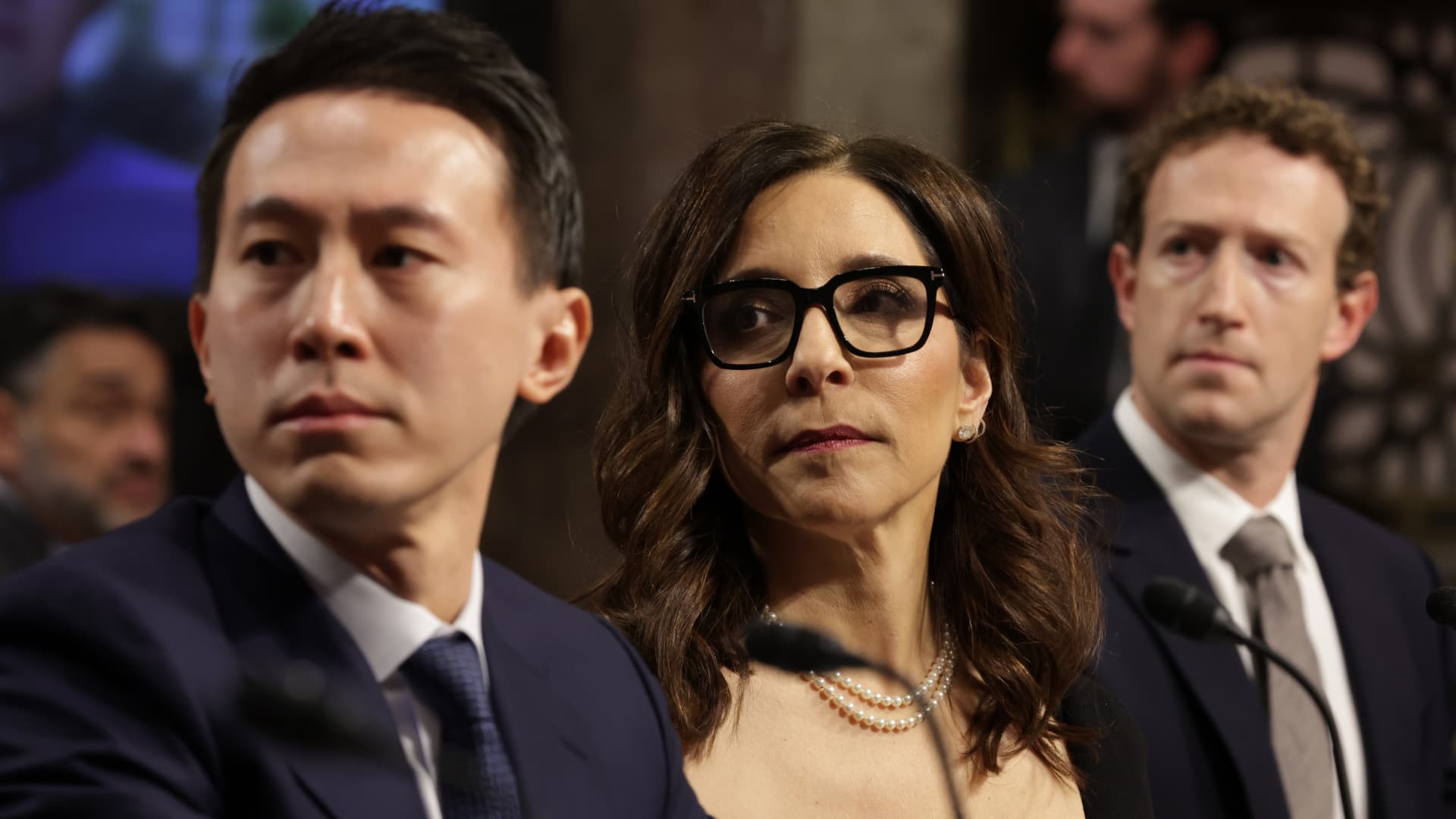Products You May Like
“We could regulate you out of business if we wanted to,” a frustrated Sen. Thom Tillis, R-N.C. told Meta CEO Mark Zuckerberg, TikTok CEO Shou Zi Chew, X CEO Linda Yaccarino and other top social media company leaders Wednesday during a Senate hearing.
Tillis and other lawmakers accused the tech executives of failing to protect children from sexual exploitation on their respective social media platforms. The hearing before the Senate Judiciary Committee was tense and frequently emotional, held in a committee room filled to capacity with guests, many of them the parents of children targeted by online predators.
In one memorable exchange, Sen. Josh Hawley, R-Mo., compelled Zuckerberg to stand up and apologize directly to parents who believed that Meta’s Facebook and Instagram apps had contributed to the death of their children.
“No one should have to go through the things that your families have suffered,” Zuckerberg told the parents.
Yet overall, the hearing featured more raw emotion than it did imminent regulation. This reality was visible in the fact that both Meta and Snap shares were relatively flat in after-hours trading on Wednesday, at $391 and $15.94, respectively.
It appears Wall Street doesn’t expect the tech firms to take any significant financial hits to their businesses from Congress, at least not yet.
Growing appetite for regulation
To be sure, both Republican and Democratic senators were united in their conviction that social media firms are failing the American public and directly harming young people.
Still, it takes time for bills to get passed, and all of these social media firms are still getting slammed for child-safety related issues, which could keep the topic fresh in the minds of politicians.
Child-safety and anti-big tech advocates are optimistic that the senate hearing will help kickstart efforts to regulate social media firms via proposed bills like the Stop CSAM Act and the Kids Online Safety Act, or KOSA.
But lawmakers have grilled tech CEOs in the past over issues related to antitrust and data privacy blunders, and they haven’t been able to pass legislation that would change the way the companies operate.
“I think we have to understand that there should be an inherent motivation for you to get this right,” Tillis said. “Or Congress will make a decision that could potentially put you out of business.”
But shortly after Tillis mentioned the idea of tough regulation, he pivoted to a commonly held belief by the pro-business community that over regulation will benefit foreign companies.
“If we ultimately destroy your ability to create value, and drive you out of business, that evil people will find another way to get to these children,” Tillis said.
Meta in the hot seat
Lawmakers largely focused on Meta during the hearing, given the company’s enormous user base, high-profile data privacy blunders, and recent lawsuits, including the one recently filed by New Mexico’s attorney general that alleged the profitable company isn’t adequately safeguarding its young users from sexual predators.
The penalties for these lawsuits could be high for the company, depending on their outcome. Indeed, the social networking giant paid $725 million in 2022 to settle a class action lawsuit stemming from its Cambridge Analytica scandal. That same year, its shares were in free-fall, due in part to a weak economy and the effects of the Apple iOS privacy update that made it more difficult for companies to track users across the web.
For now, Meta’s business continues to rebound after its disastrous 2022, with its advertising business partially lifted by what the company’s finance chief has previously said are unnamed “Chinese retailers.”
Advertising experts and analysts believe these retailers include the fast-rising startups Temu and Shein, two companies that U.S. lawmakers have previously complained are unfairly benefiting from certain trade rules because of their connections to China.
Lawmakers have increasingly sounded alarms over Chinese companies, and during this hearing, peppered TikTok’s Chew with questions about the social network’s Chinese owner, ByteDance.
Sen. Tom Cotton, R-Ark., in particular, interrogated Chew about China, even asking the executive whether he has “ever been a member of the Chinese Communist Party.”
“Senator, I’m Singaporean,” Chew said.
Watch: Meta CEO Mark Zuckerberg apologizes to parents at online child safety Senate hearing.
